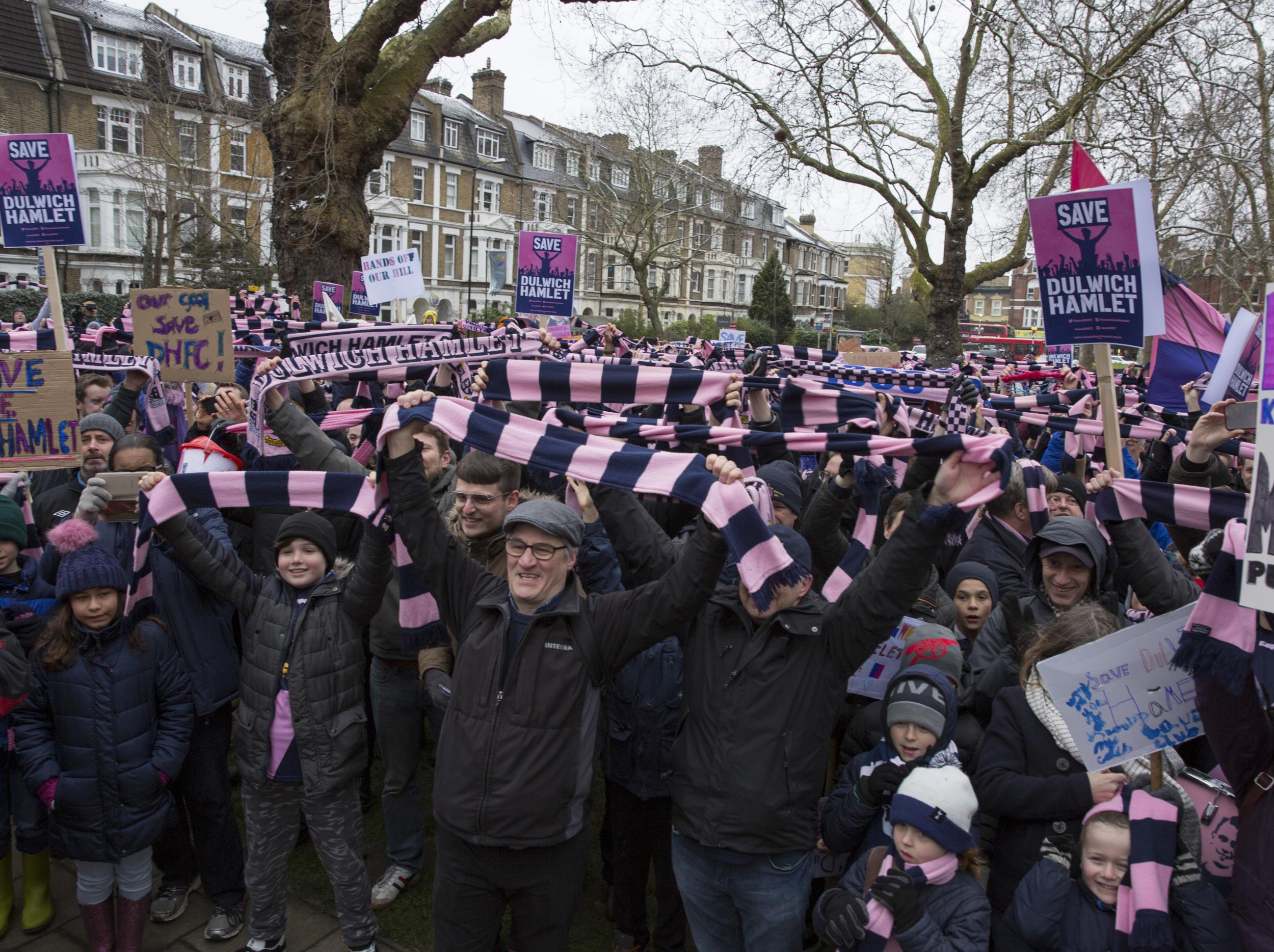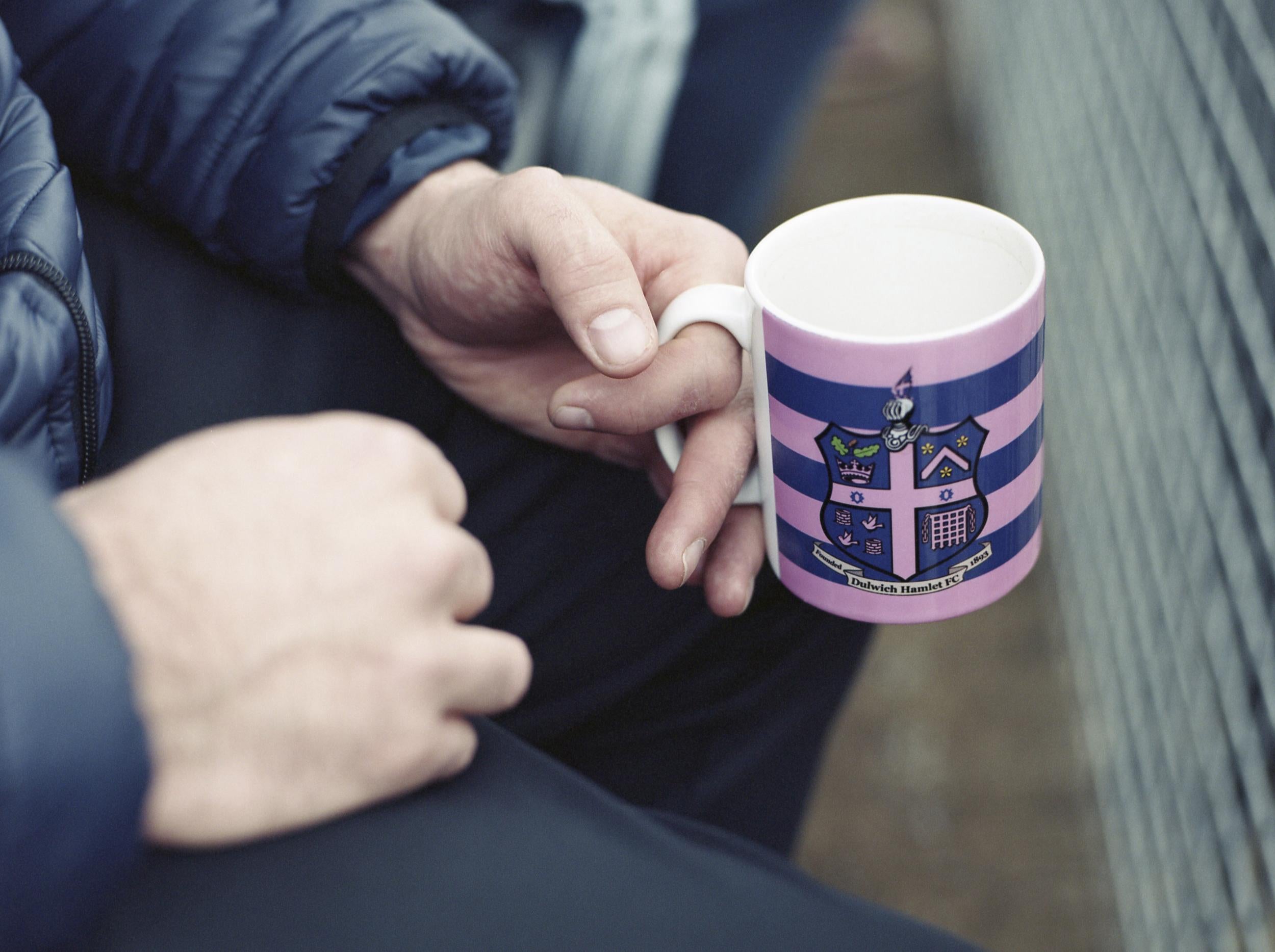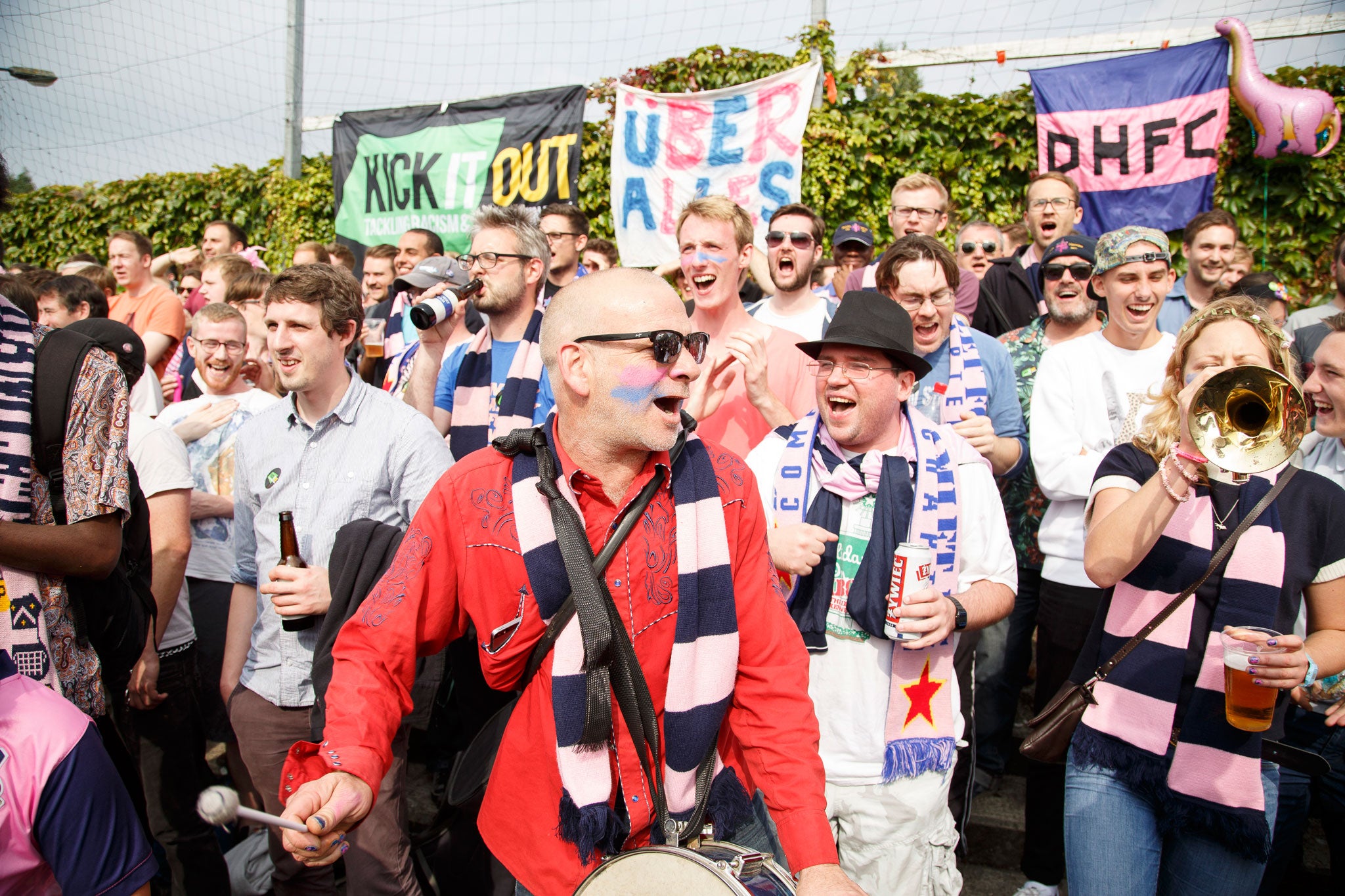Dulwich Hamlet secure historic promotion with win over Hendon – but bitter fight for club’s future continues
Dulwich Hamlet achieved promotion from the Bostik Premier Division to the National League South with a nervy win over Hendon – but the fight continues

Anyone driving through this particular corner of south London on Monday evening, without a serious interest in local non-league football, must have wondered what was going on.
Every car, cab or bus trying to round the Goose Green Roundabout, emerged through the haze of purple smoke, into a crowd of hundreds of celebrating football fans and players. They spilled from the roundabout into the road into the pub and all they asked was that any passing vehicle sound its horn to pass through, a simple small contribution to this impromptu party on a Monday night.
Dulwich Hamlet had just been promoted from the Bostik Premier Division to the National League South, leaving the Isthmian League behind for the first time in their 125-year history. This had been a long time coming in more ways than that. Last year they lost the play-off final, to Bognor Regis Town. The year before that they lost the play-off final too, to East Thurrock United.
This season they had pushed Billiercay Town all the way in the league only to finish second and go back into the play-offs. On Thursday night they scraped past Leiston 1-0, on Monday afternoon they played Hendon, in front of 3,321 people in the baking heat. The game finished 1-1, the players struggled through extra-time and crawled through to penalties. Dipo Akinyemi tucked away the decisive kick, and seconds later the sunburnt crowd were swarming onto the pitch.

But events like this happen every May in the lower leagues and non-leagues. So what makes this any different from any other dramatic overdue promotion and gleeful celebration?
Monday’s final, nominally at Dulwich’s ‘home’, was played seven miles south of Dulwich, at Tooting & Mitcham United’s Imperial Fields. Dulwich’s historic home, Champion Hill, has been empty and locked up for months. The team were evicted in March by the ground’s owners, Meadow Residential, the UK development arm of a New York-based private equity fund. Meadow bought the ground in 2014 to turn it into flats. Southwark Council have not allowed them.
The result has been a long battle over the future of Champion Hill, with Meadow on one side and Southwark and Dulwich Hamlet on the other. The battle has seen, amongst other highlights: Rio Ferdinand make a £10million rescue offer, senior Labour figures Sadiq Khan, Tom Watson and Jeremy Corbyn pledge support to Dulwich, Southwark starting the long process for CPO powers, Meadow trademark the club’s name and initials, trying to ban the club from using them and then the government pledging to get involved if Meadow and Southwark cannot agree anything between themselves.
This is why promotion was such a remarkable achievement: because so much time and energy this season was spent on trying to stay alive, find a home, pay wages, fight legal threats, even before the club could focus on the football. And having both stayed alive and won promotion, the club’s position has strengthened: National League South means bigger opponents, like Torquay United, which means more revenue, wherever the team plays next year.
But that depends on the biggest question of all: what happens to Champion Hill? Meadow have insisted throughout that they do not want to sell the ground, at least not for the offers they have received so far. They are in no rush to go anywhere: they have ploughed millions into this investment and expect a serious return.
So last month Meadow issued a new pre-application to develop the site, raising eyebrows at a council that does not want anything more to do with them and has repeatedly called on Meadow to sell. But Meadow insist their new plan is within GLA policy and now, following last week's council elections, they intend to see it through to a new application over the summer.

Most importantly, Meadow have no intention of letting Dulwich back into Champion Hill under current circumstances. Only if Southwark support their new application will they consider it, but there is almost no chance of that. Each side still accuses the other of holding the club hostage as leverage. Which means that, short of an unexpected change of heart from either Southwark or Meadow, there is little chance of Dulwich playing National League South football at their true home any time soon.
After a draining but triumphant season, the fight will continue over the summer.
Join our commenting forum
Join thought-provoking conversations, follow other Independent readers and see their replies
Comments